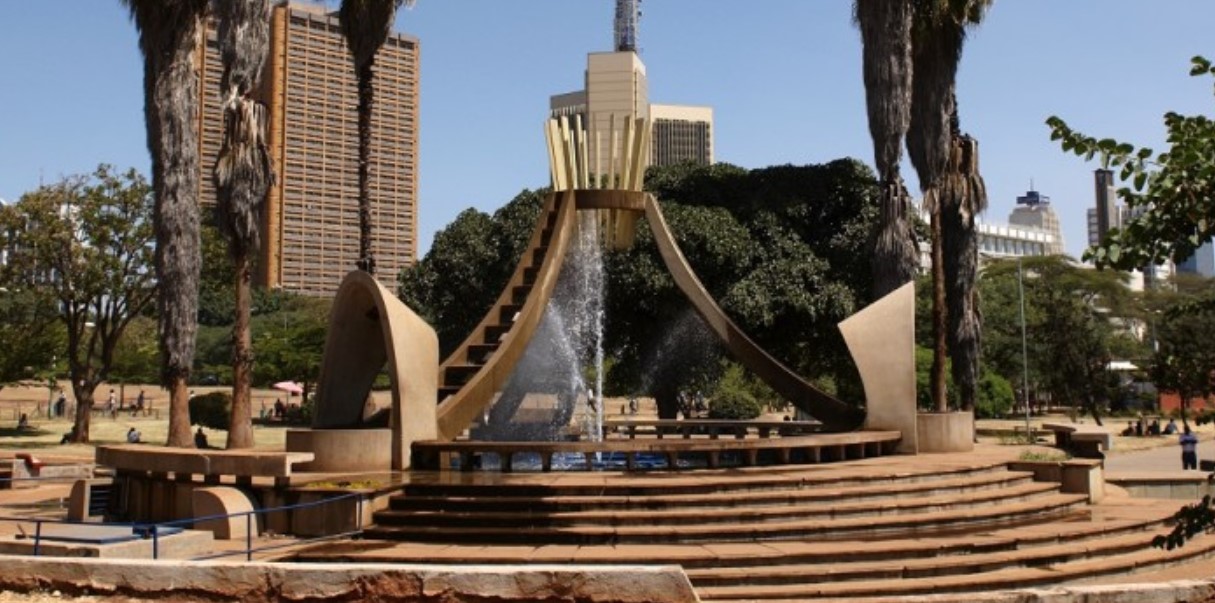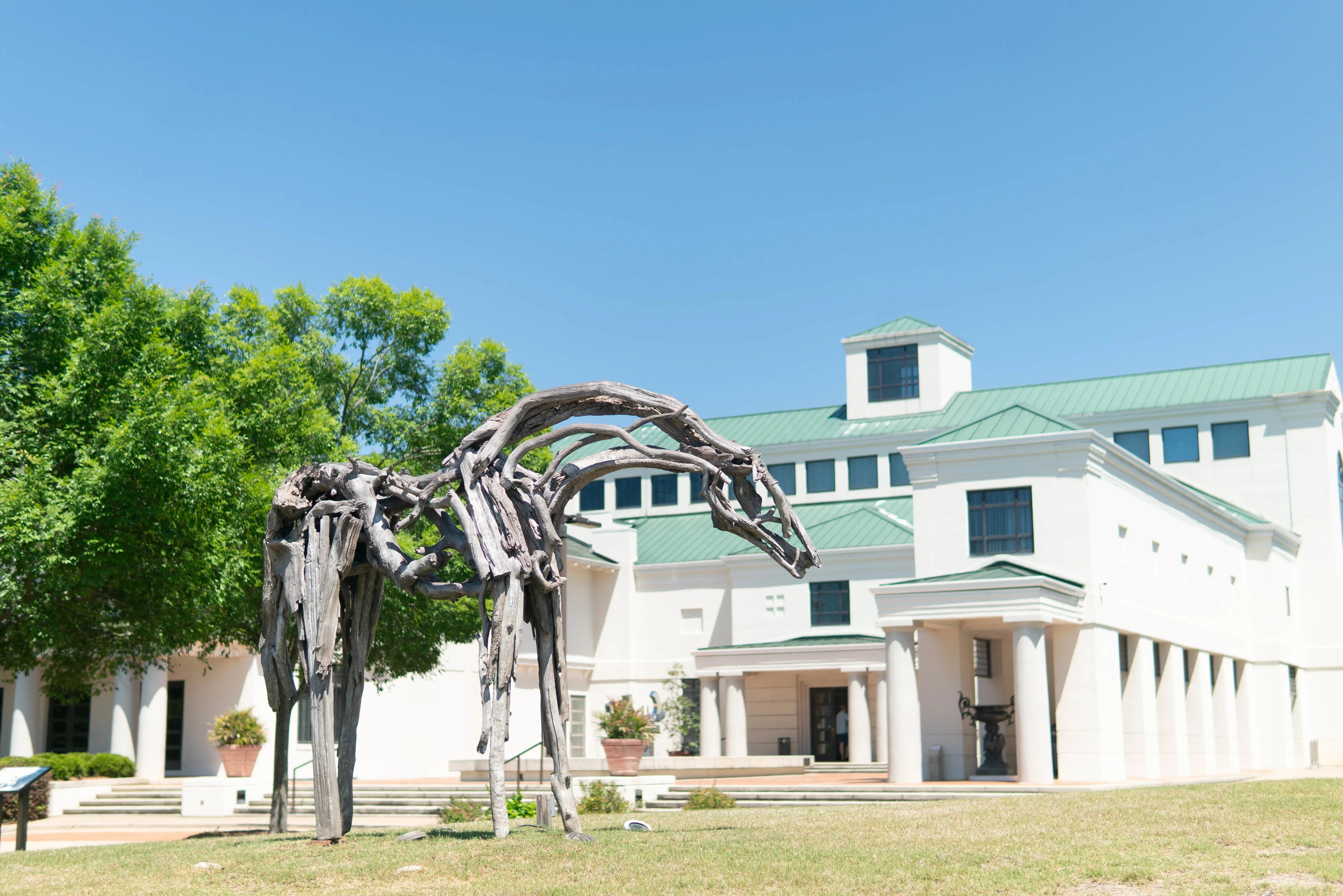Welcome to the Columbus Museum Uhuru, a vibrant hub of art and culture that showcases the rich heritage of the African diaspora. This museum stands as a beacon of community engagement and cultural education, inviting visitors to explore the depths of artistic expression and historical significance. In this article, we’ll delve into the museum's history, its collections, and the impact it has on both local and global communities.
Established with the vision of promoting awareness and appreciation of African art, the Columbus Museum Uhuru serves not only as a museum but also as a cultural center that engages audiences of all ages. The museum's commitment to excellence in curation and education aligns with the principles of E-E-A-T (Expertise, Authoritativeness, Trustworthiness) ensuring that every visitor leaves with a deeper understanding of the narratives woven into the fabric of African art.
In this comprehensive guide, we will cover various aspects of the Columbus Museum Uhuru, from its founding and mission to major exhibitions and community programs. Whether you are an art enthusiast, a student, or a casual visitor, this article aims to provide you with valuable insights into the museum's offerings and significance in today's world.
Table of Contents
History of the Columbus Museum Uhuru
The Columbus Museum Uhuru was founded in 1995, born out of a desire to create a space where African art could be celebrated and shared. The name "Uhuru," which means "freedom" in Swahili, reflects the museum's mission to promote cultural awareness and artistic expression. The founders, a group of dedicated artists and community leaders, envisioned a museum that would serve as a platform for African and African diaspora artists.
Founding Goals and Vision
The founding goals of the Columbus Museum Uhuru include:
- Promoting African art and culture
- Providing educational resources for the community
- Supporting local artists and artisans
- Encouraging dialogue about cultural identity and heritage
Significant Milestones
Over the years, the museum has celebrated numerous milestones, including:
- Opening its first major exhibition in 1997
- Establishing partnerships with schools and universities
- Hosting international artists and exhibitions
- Launching community outreach programs in 2010
Collections and Exhibitions
The collections at the Columbus Museum Uhuru are diverse and expansive, featuring a plethora of artworks that reflect the richness of African culture. The museum houses a variety of art forms, including paintings, sculptures, textiles, and multimedia installations. Each piece tells a story, providing insight into the cultural heritage of Africa and its diaspora.
Featured Artists
Among the museum's notable collections are works by renowned artists such as:
- El Anatsui
- Yinka Shonibare
- Wangechi Mutu
- Chris Ofili
Temporary Exhibitions
The Columbus Museum Uhuru also hosts temporary exhibitions that rotate throughout the year. These exhibitions often focus on specific themes or highlight emerging artists from the African diaspora, making each visit a unique experience.
Community Engagement and Programs
The museum is deeply committed to community engagement, offering a range of programs designed to connect with local audiences. Through workshops, lectures, and collaborative events, the Columbus Museum Uhuru fosters a sense of belonging and encourages cultural exchange.
Workshops and Classes
The museum regularly conducts workshops and classes for various age groups, focusing on:
- Art techniques and mediums
- Cultural storytelling
- Historical context of African art
Collaborative Events
In partnership with local organizations, the museum hosts collaborative events that celebrate African culture and promote community unity. These events often include:
- Cultural festivals
- Art fairs
- Panel discussions with artists and experts
Visiting the Museum
Planning a visit to the Columbus Museum Uhuru is an enriching experience. The museum welcomes visitors of all ages and backgrounds, providing an opportunity to explore the world of African art and culture.
Visitor Information
Key details for visitors include:
- Location: [Insert Address]
- Opening Hours: [Insert hours]
- Admission Fees: [Insert fees]
Accessibility
The Columbus Museum Uhuru is committed to ensuring accessibility for all visitors. The museum provides facilities and accommodations for individuals with disabilities, making it a welcoming space for everyone.
Special Events and Workshops
The museum hosts a variety of special events throughout the year, including art exhibitions, cultural celebrations, and workshops led by renowned artists. These events provide unique opportunities for visitors to engage with the art and learn from experts in the field.
Annual Festivals
Each year, the Columbus Museum Uhuru organizes festivals that celebrate African culture, featuring:
- Live performances
- Art demonstrations
- Food and craft vendors
Artist Talks
Artist talks are another highlight of the museum's programming, allowing visitors to hear directly from artists about their work and creative processes. These engaging discussions provide valuable insights and inspire budding artists in the community.
Educational Programs
The Columbus Museum Uhuru places a strong emphasis on education, offering programs tailored to schools and educational institutions. These programs aim to enhance understanding of African art and culture while fostering creativity among students.
School Partnerships
The museum collaborates with local schools to provide educational resources and field trip opportunities for students. Activities include:
- Guided tours of the museum
- Hands-on art projects
- Interactive workshops
Scholarships and Internships
To support aspiring artists and educators, the Columbus Museum Uhuru offers scholarships and internship programs for students interested in pursuing careers in the arts. These initiatives provide valuable experience and mentorship opportunities.
Impact on Art and Culture
The impact of the Columbus Museum Uhuru extends beyond its walls, influencing both the local community and the broader art world. By showcasing African art and culture, the museum plays a vital role in promoting diversity and inclusivity in the arts.
Cultural Representation
The museum's commitment to cultural representation helps to elevate underrepresented voices in the art world. By providing a platform for African artists, the Columbus Museum Uhuru contributes to a more equitable and diverse cultural landscape.
Fostering Creativity
Through its educational programs and community engagement initiatives, the museum fosters creativity and artistic expression among individuals of all ages. This nurturing environment encourages a new generation of artists and art enthusiasts.
Future of the Columbus Museum Uhuru
Looking ahead, the Columbus Museum Uhuru is dedicated to expanding its reach and impact. Future plans include:
- Enhancing digital access to collections and exhibitions
- Developing new partnerships with international artists and institutions
- Increasing community outreach efforts to engage diverse audiences
Vision for Growth
The museum envisions a future where it can further its mission of promoting African art and culture on a global scale. By embracing innovation and collaboration, the Columbus Museum Uhuru aims to remain a vital cultural institution for years to come.
Conclusion
In summary, the Columbus Museum Uhuru stands as a testament to the richness of African art and culture. With its diverse collections, community programs, and educational initiatives, the museum plays a crucial role in fostering cultural appreciation and dialogue. We encourage you to visit the museum, engage with its offerings, and become a part of this vibrant community.
Article Recommendations



ncG1vNJzZmilqZu8rbXAZ5qopV%2BcrrOwxKdsaKyYmnqku8uuma6rXaLCtLHUpmSuoKWnwm%2B006aj